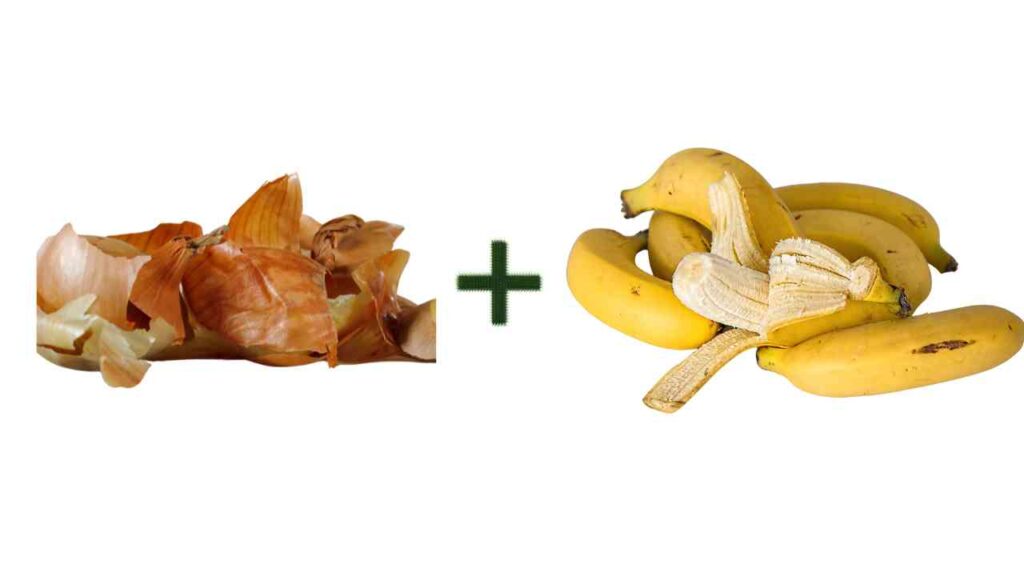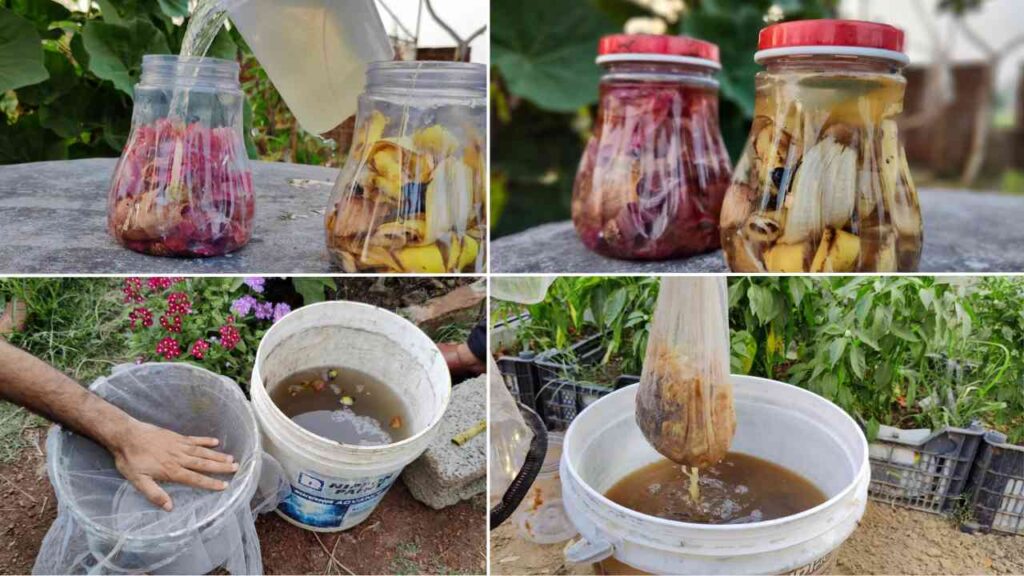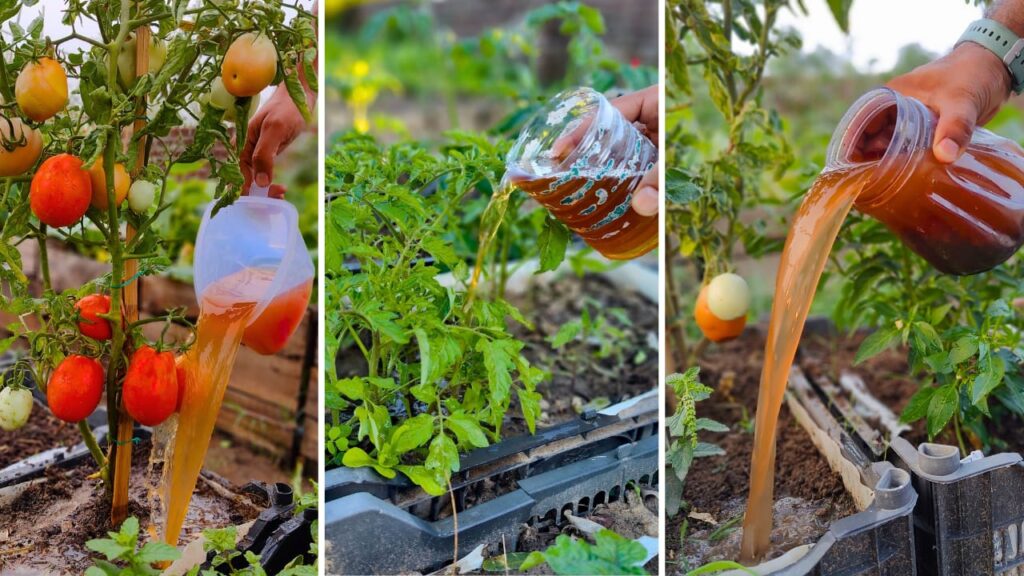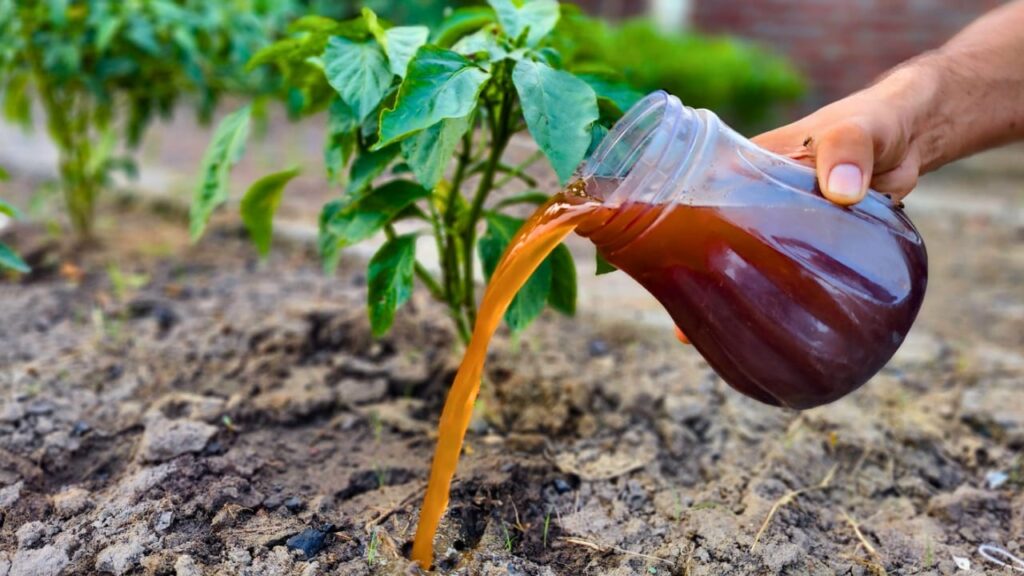Using banana peels and onion peels is one simple but efficient way to offer natural and nutrient-rich solutions for your plants. You can transform these common cooking leftovers into a potent organic liquid fertilizer that offers several benefits for your garden. Using this homemade fertilizer on a regular basis can not only enhance the general health of your plants but also enable them to develop more robustly, with more plentiful flowers and fruits. Your plants will grow more resistant to diseases and pests, therefore improving the output of your garden. Here are step-by-step instructions on how to create this fantastic fertilizer and why it is so good for your plants.
Making the Banana and Onion Peel Fertilizer

Gather your components—onion peels and banana peels—to start producing your own fertilizer. You can gather these from your kitchen while you get ready for your meals. Put the banana peels in one container and the onion peels in another. Ensure both containers have lids that can be firmly closed.
Next, fill each container with lukewarm water, ensuring that the peels are well submerged. The heated water helps to leach the nutrients from the peels into the water. Once the containers are full, close the lids tightly to keep the peels protected from contamination and to guarantee that the advantageous microorganisms can operate effectively. Allow the containers to remain undisturbed for roughly one week. The peels will gradually break down over this period, therefore releasing useful nutrients such as potassium, calcium, sulfur, and phosphorus into the water. The outcome is a liquid fertilizer rich in nutrients prepared to feed your garden.
Making the Fertilizer Ready for Use

It’s time to filter the liquid from both containers after letting the peels soak for a week. Fill a five-gallon bucket (roughly 10 liters) with the filtered liquid. This dilution guarantees that the fertilizer won’t damage your plants. Add another five liters of compost tea to increase the nutritious content of the combination. Rich in beneficial bacteria and nutrients, compost tea helps to improve the efficacy of the fertilizer even more. Mix everything thoroughly to guarantee equitable distribution of the parts.
Your homemade organic liquid fertilizer is ready to use once mixed. This nutrient-dense solution may now be sprayed on your garden, giving your plants the food they need to grow.
Onion and Banana Peels’ Nutritional Advantages
Onion Peels: High in Calcium, Potassium, and Sulfur

A key component for plant growth, onion peels are rather rich in sulfur. Healthy plant growth depends on amino acids and proteins, whose production is greatly influenced by sulfur. It also helps create vitamins and enzymes that support plant strength and disease resistance. Particularly good for increasing the capacity of the plant to withstand diseases and pests is sulfur, which helps to create a robust garden.
Onion peels also have calcium and potassium, both of which are vital for plant growth. Potassium increases general plant vitality, develops root systems, and helps with drought resistance. Conversely, calcium is required for development and cell wall construction. It guarantees that your plants grow healthy and fruitful by preventing problems like blossom end rot, which is often seen in tomatoes and peppers.
Banana Peels: A Calcium, Phosphorus, and Potassium Source

Another strong component for your homemade fertilizer is banana peels. They are a fantastic supply of calcium, phosphorus, and potassium—three elements absolutely vital for plant health. Regulating water absorption, boosting photosynthesis, and strengthening the general disease resistance of the plant all depend on potassium. Adding banana peel-based fertilizer to your plants helps them become more robust and stronger.
Abundant in banana peels, phosphorus is vital for energy transfer inside plants. It guarantees that your plants grow strong roots and plenty of flowers by means of root growth, flowering, and fruiting. Phosphorus is also quite significant in photosynthesis since it enables plants to efficiently transform sunlight into energy. The calcium in banana peels supports cell division and general growth, hence fostering strong and healthy plants.
Boosting the Effectiveness with Compost Tea

Combining compost tea with the banana and onion peel fertilizer increases the advantages even further. Rich in beneficial bacteria, compost tea enhances soil structure and nutrient availability. These bacteria break down organic debris in the soil, making nutrients more accessible for plant roots. Compost tea promotes a healthy and balanced soil ecosystem and helps to improve the water-holding capacity of the soil, hence lowering the need for regular watering.
Beneficial bacteria and fungi brought into the soil by compost tea outcompete harmful pathogens, therefore preventing soil-borne diseases and ensuring that your plants have a favorable environment to develop. Stronger plants with improved disease and insect resistance follow from this one.
Conclusion: The Power of Organic Fertilizers

Including banana and onion peels in your organic fertilizer program is a quick, simple approach to enhance the condition of your garden. This DIY fertilizer not only offers vital elements like potassium, sulfur, phosphorus, and calcium, but also improves the general structure and fertility of your soil. Adding compost tea increases the nutritional content and microbial activity of your soil, hence supporting a vibrant, disease-resistant garden.Enjoy your gardening!

